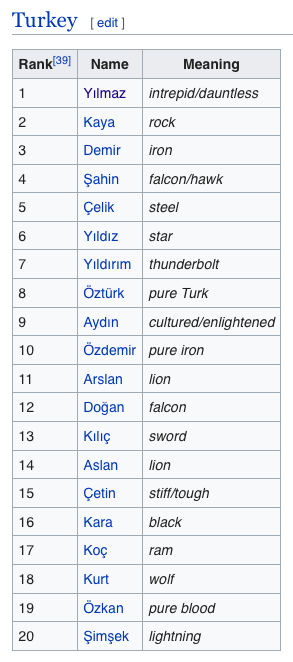//Ed. Note: In continuation of his commentary on
espousing Turkish names for Turks, rather than
Arab or Jewish ones, Şerefeddin Mağmumi even
provides some candidate names.
Mağmumi himself was born Eşref Fevzi. It is
said that he adopted the name "mağmumi",
which means "sadness", as a consequence
of his mother dying when he was very young.//

Mağmumi in 1895.
In those times (Ottoman period) Turkishness was looked down
upon and they chose the wrong way by favoring Arab style! As
was the case in the West (Ottoman Turkey), so too in the East,
meaning Khiva, Buhara and Kashgar, Arab names were mostly
used. Today in Anatolia only a few Turkish names like Yaşar,
Durmuş, Bayram and Tosun remain. Half of the men are named
Ahmet, Mehmet, Ali, Hasan and Hüseyin and there are many
families with generations of men - fathers, grandfathers, great
grandfathers - named Mehmet. As for women's names, they
are seemingly limited to Ayşe and Fatma.
In the big cities, and especially in Istanbul, there is a gradual
return to "Turkishness-light". But rather than reviving our own
lost names, odd ones like Nejad and Nevzad have begun to be
adopted. In my view, just as every nation has its own unique
language, there are also names that accord with that language's
accent and pronunciation. A person should bear a name that
can be pronounced in his own language, regardless of religion
or sect. When a Christian, be he a Greek, an Armenian
or an Englishman, accepts Islam, he doesn't abandon his own
language for Arabic and neither is it a requirement that he take
an Arab name. He still speaks his own language and goes by
his own name.
Nevertheless, a convert to Islam may feel the need to have the
name of the Prophet Muhammed or one of his disciples in
tandem with his own name. For example, William from
Liverpool may become "Abdullah William", Bob from America
may become "Mehmet Bob" and Noda from Japan may become
"Abdülhalim Noda" when they convert to Islam. So why can't
we Turks add a Turkish name to our Arab one?
Some Turks might say that they don't know of any Turkish names
but Necip Asım gives 20-30 candidate names in his book
"Turkish History". If these don't suffice then our children can
search for more and multiply the candidate names as time goes
by. Some may say that these names sound strange but this is just
a matter of training the ear to accommodate new sounds, like
getting used to anything else that's new. We get used to things
with repetition and the strangeness gradually disappears. Already,
names like Orhan and Tarhan don't sound odd anymore because
our ears have become attuned to them.
We should start to use other Turkish names, too. Why not have
"Aydın", "Gündüz" and "Aygil" instead of "Münevver", "Enver"
and "Lâmi"? And "Yaşar", "Durmuş" and "Doğmuş" in place of
"Hayati", "Baki" and "Tevzad"? You say you want some more
candidate names, well here are a few from "Turkish History": for
men - Oğuz, Kalkız, Uluğ, Turgut, Bayktal, Macur, Satık, Buğra,
Teskeş, Tetiş, Argun, Ayaz, Çağrı, Gümüştekin, Kavrid, Savcı, Alp,
Şadu, Erkil, Tulun and, for women - Türkan, Alan, Sevgül, Saraya,
Baykan, Saygül and Gökcel.
So both myself and a few of my fellow writers deem it necessary to
adopt pennames, like "Oğuz", in order to get our readers accustomed
to these "esami-yi Etrâk" (Turkish names) out of patriotism for our
nation.
//Ed. Note: herewith a list of pure Turkish names
that are very common among men in Turkey today,
whereas in 1906 probably none of them were in
use.//

.

Hiç yorum yok:
Yorum Gönder